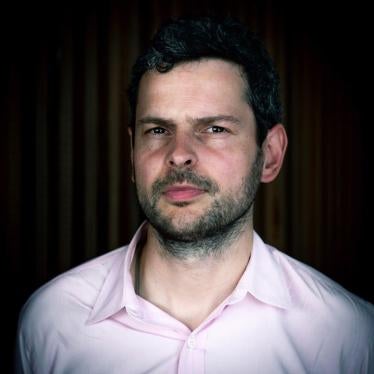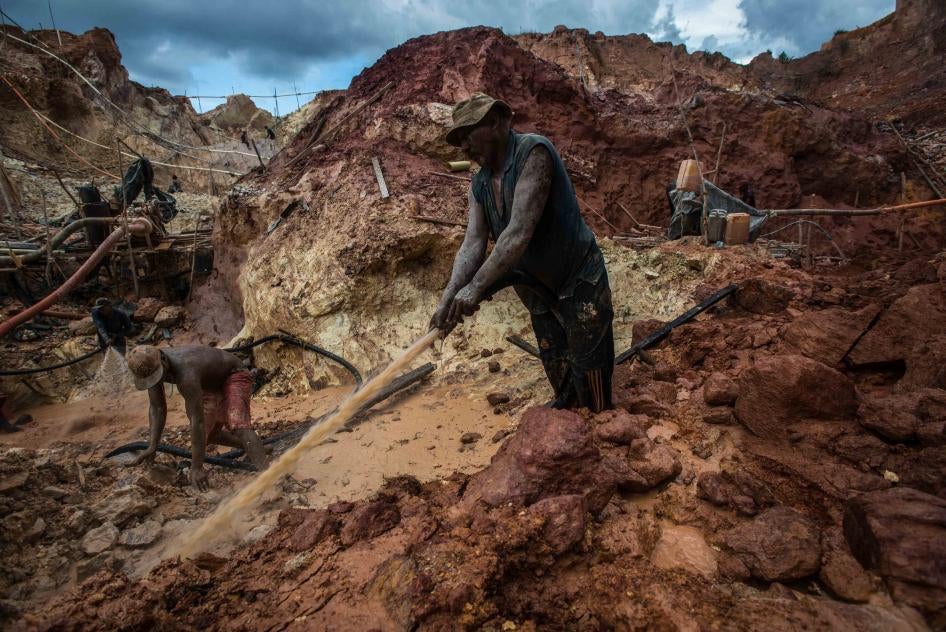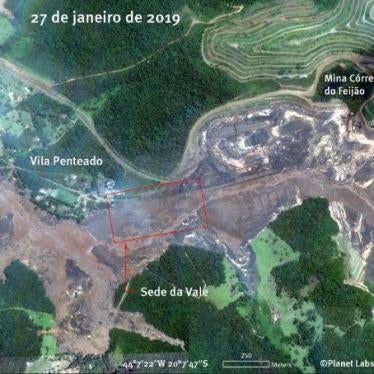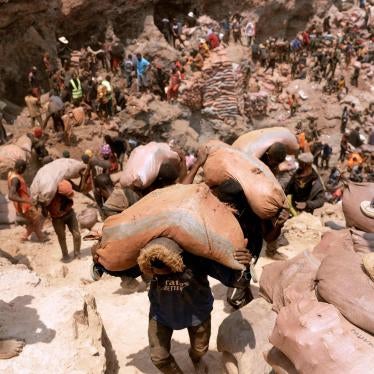The world is likely to see a spate of new mining projects in 2025. New U.S. President Donald Trump, while promising the dangerous expansion of U.S. oil and gas production, aims to make the U.S. "the leading producer and processor" of minerals. Several mining companies whose copper, nickel, and other projects were denied or are awaiting approval are hoping for a green light to break ground under the new administration.
Outside of the U.S., the urgent need to transition to renewable energy is driving increased government support for mining worldwide. Governments are keen to secure the lithium, cobalt, and other minerals needed for electric vehicle batteries, solar panels, and other renewable energy technologies.
The acceleration and expansion of mining poses risks for Indigenous Peoples, communities, and the environment. The mining industry has a track record of human rights abuses and other harm, from the destruction of sacred Indigenous lands to deaths from devastating waste storage dam collapses. In October 2024, a United Nations panel warned that increasing global demand for minerals, "If not managed responsibly, could trigger or exacerbate human rights violations and abuses, conflicts, violence, and harm to affected communities and individuals along the value chain."
Our organizations are pushing for strong government regulation of mining to protect communities and the environment. Key priorities in the U.S. include reforming an antiquated 1872 mining law and expanding government and company consultation with communities prior to approving mining projects, including protecting Indigenous Peoples' right to free, prior, and informed consent.
In the European Union (EU), there has already been some tangible progress. European institutions have adopted a corporate accountability law requiring all companies, mining and otherwise, to address human rights and environmental abuses in their operations and supply chains. Another EU law requires companies making or importing batteries to ensure the lithium, nickel, graphite, and cobalt in the batteries are sourced responsibly.
The EU is also trying to secure its own access to what it calls "critical raw materials" and has passed legislation to streamline permitting procedures for "strategic" mining projects. Civil society groups in the EU underscore that mine permitting processes should include the participation of affected communities and environmental groups and ensure they have enough time to raise concerns and objections.
Although no substitute for strong government regulation, there are also voluntary standards that can provide guidance to mining companies on best practices. Our organizations are members of the Initiative for Responsible Mining Assurance (IRMA), a voluntary initiative that has synthesized international human rights law and environmental standards into a single document defining responsible mining practices.
Analysis of the new mining industry standard by Public Citizen, Earthworks, and other groups found that its requirements were too vague to provide detailed guidance on responsible mining. The standard also enables mining companies to claim "foundational level" performance for practices that fall well short of international standards.
Communities and Indigenous Peoples—and mining companies, their investors, and customers—will not be well served by an industry-led standard that risks glossing over human rights and environmental harm and that does not provide transparent and detailed analysis of mining companies' performance.
Greater demand for mining in 2025 means a greater need to effectively regulate mining and hold companies accountable for human rights and environmental harm. Robust and detailed voluntary standards, like IRMA, could help support responsible mining, but only if they meaningfully promote mining companies' respect for human rights and the environment.
The strength of IRMA is its governance system, which gives community representatives, labor unions, and civil society groups equal power, alongside mining companies and the private sector, to craft its standards. IRMA's standard can no doubt be improved upon—a new version of the standard will go out for public consultation in early 2025—but it is currently the most rigorous benchmark available for the mining industry to provide transparency on its conduct and practices.
Some mining companies, however, are yet to embrace IRMA's voluntary standard and are looking for a less demanding alternative. The International Council on Mining and Metals, a business association of the world's biggest mining companies, is working with other mining industry groups to develop their own mining standard, called the "Consolidated Mining Standard Initiative."
We and dozens of other civil society groups have warned the council and its partners that standards developed by the mining industry without meaningful participation from affected communities, workers, and civil society groups will lack transparency, accountability, and rigor.










